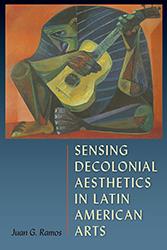Buy Books: Browse by Season: Fall 2017
Fall 2025 - Spring 2025 - Fall 2024 - Spring 2024 - Fall 2023 - Spring 2023Please note that while you may order forthcoming books at any time, they will not be available for shipment until shortly before publication date
The Shadow of Selma provides a comprehensive assessment of the 1965 civil rights campaign, the historical memory of the marches, and the continuing relevance of and challenges to the Voting Rights Act. The essays consider Selma not just as a keystone event but, much like Ferguson today, as a transformative place: a supposedly unimportant location that became the focal point of epochal historical events.
Telling Migrant Stories explores how contemporary documentary film gives voice to Latin American immigrants whose stories would not otherwise be heard.
The chaotic years after the Civil War are often seen as a time of uniquely American idealism—a revolutionary attempt to rebuild the nation that paved the way for the civil rights movement of the twentieth century. But Adam Fairclough rejects this prevailing view, challenging prominent historians such as Eric Foner and James McPherson. He argues that Reconstruction was, quite simply, a disaster and that the civil rights movement triumphed despite it, not because of it.
Juan Ramos uses “decolonial aesthetics,” a theory that frees the idea of art from Eurocentric forms of expression and philosophies of the beautiful, to examine the long decade of the 1960s in Latin America—a time of cultural production that has not been studied extensively from a decolonial perspective.











